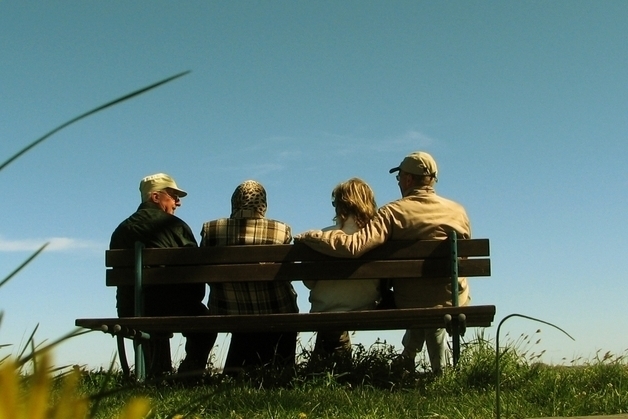

In countries that have a well-developed social system, cohesion between generations is particularly strong.
© Photocase/cw-design
A new book presents evidence on how to reinforce social and economic inclusion in spite of population ageing. The findings are based on the latest data of the Survey of Health, Ageing and Retirement in Europe (SHARE), a multidisciplinary and cross-national panel database that is coordinated by Axel Börsch-Supan, Director at the Max Planck Institute for Social Law and Social Policy.
It collects detailed information on European individuals aged 50 or older. This enables researchers to observe how the economic, health, and social situation of older people in Europe changes. The project is coordinated by the Max Planck Institute for Social Law and Social Policy.
“The notion that population ageing drives our societies into a war between generations may be popular in television shows but the facts are quite different. Intergenerational cohesion is still strong all over Europe”, stresses Börsch-Supan.This is one of the results of the current survey of SHARE.
The results show that cohesion between the generations is particularly strong in countries that have a well-developed social system and where social inequality is low.
The evaluation has now been published in the book Ageing in Europe – Supporting Policies for an Inclusive Society. “Despite an aging population, the chances are good that the quality of life of senior citizens can be improved further if politicians use our scientific knowledge and data,” says Borsch-Supan.
According to the findings, material support is not everything. Strengthening the health system and social welfare would also help to reduce the social isolation of older people. Other chapters of the book deal with the employment situation of older people and with the burden of men and especially women who care for family members.
Ruth Paserman, Deputy Head of the Cabinet of Marianne Thyssen, Commissioner for Employment, Social Affairs, Skills and Labour Mobility also attended the book launch. She emphasised the practical use of the results: “The knowledge generated by SHARE will help us deliver reforms aimed at extending working lives and making social protection systems sustainable in our ageing societies”.
Now we must get more countries to participate in SHARE to enhance its usefulness as a tool for mutual learning.
Contact
Prof. Axel Börsch-Supan, Ph.D.
Max Planck Institute for Social Law and Social Policy, München
Phone: +49 89 38602-357
Fax: +49 89 38602-390
Email: boersch-supan@mea.mpisoc.mpg.de
Verena Coscia
Public Relations
Max Planck Institute for Social Law and Social Policy, München
Phone: +49 89 38602-352
Email: coscia@mea.mpisoc.mpg.de
Munich Center for the Economics of Aging, SHARE – Survey of Health, Ageing and Retirement in Europe
Original publication
Börsch-Supan, Axel; Kneip, Thorsten; Litwin, Howard; Myck, Michal; Weber, Guglielmo
Ageing in Europe – Supporting Policies for an Inclusive Society
DE GRUYTER, October 2015












